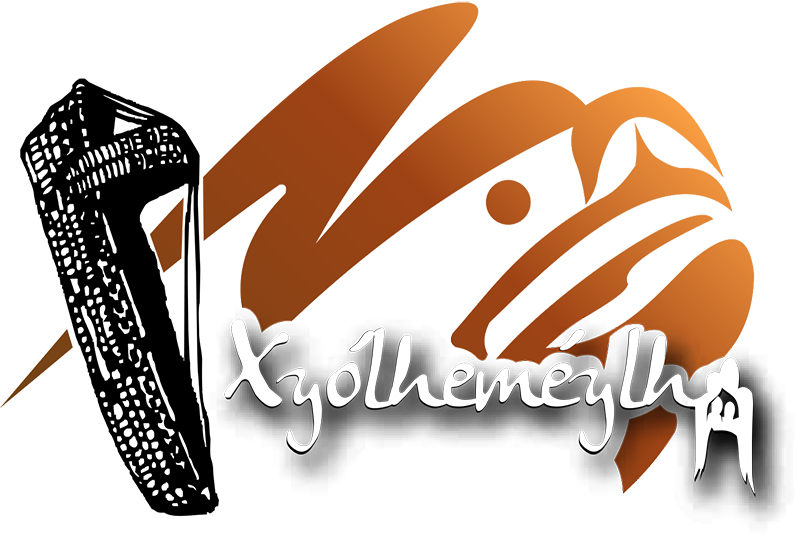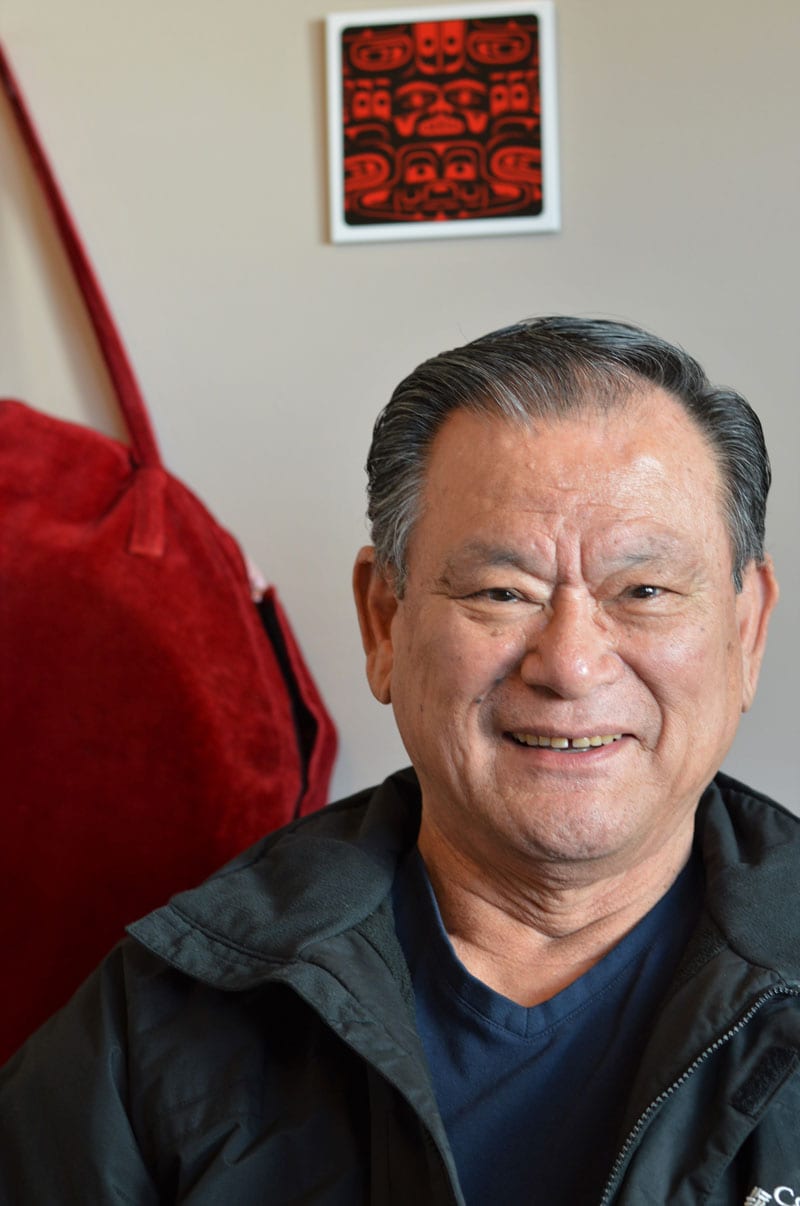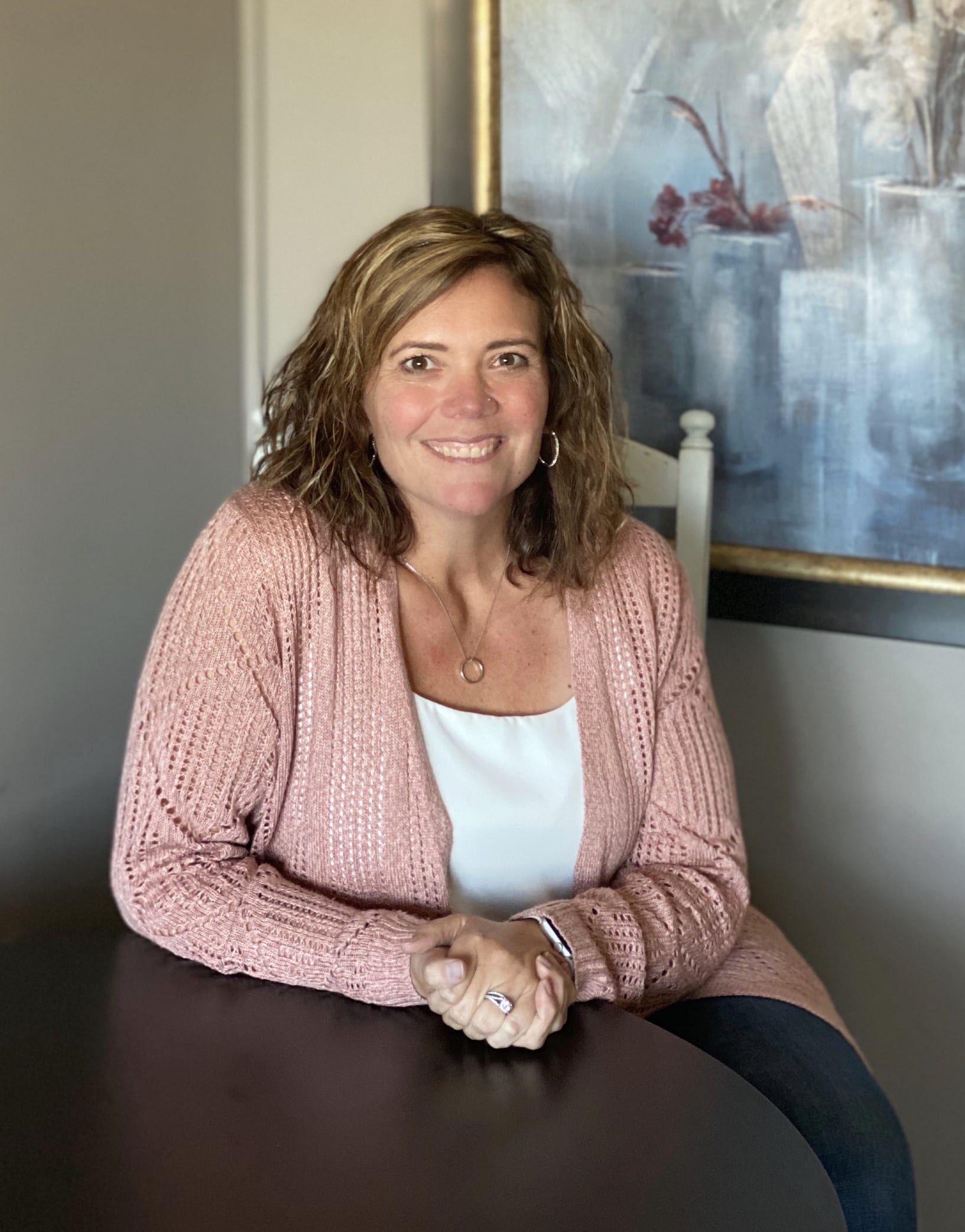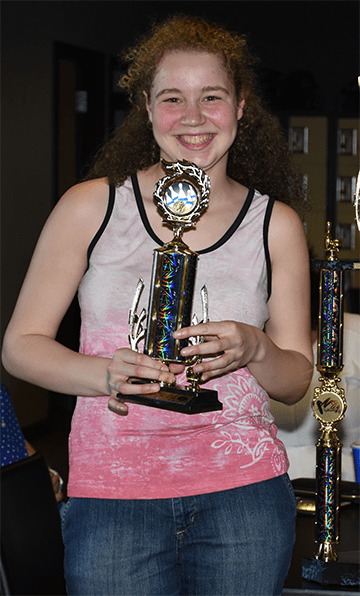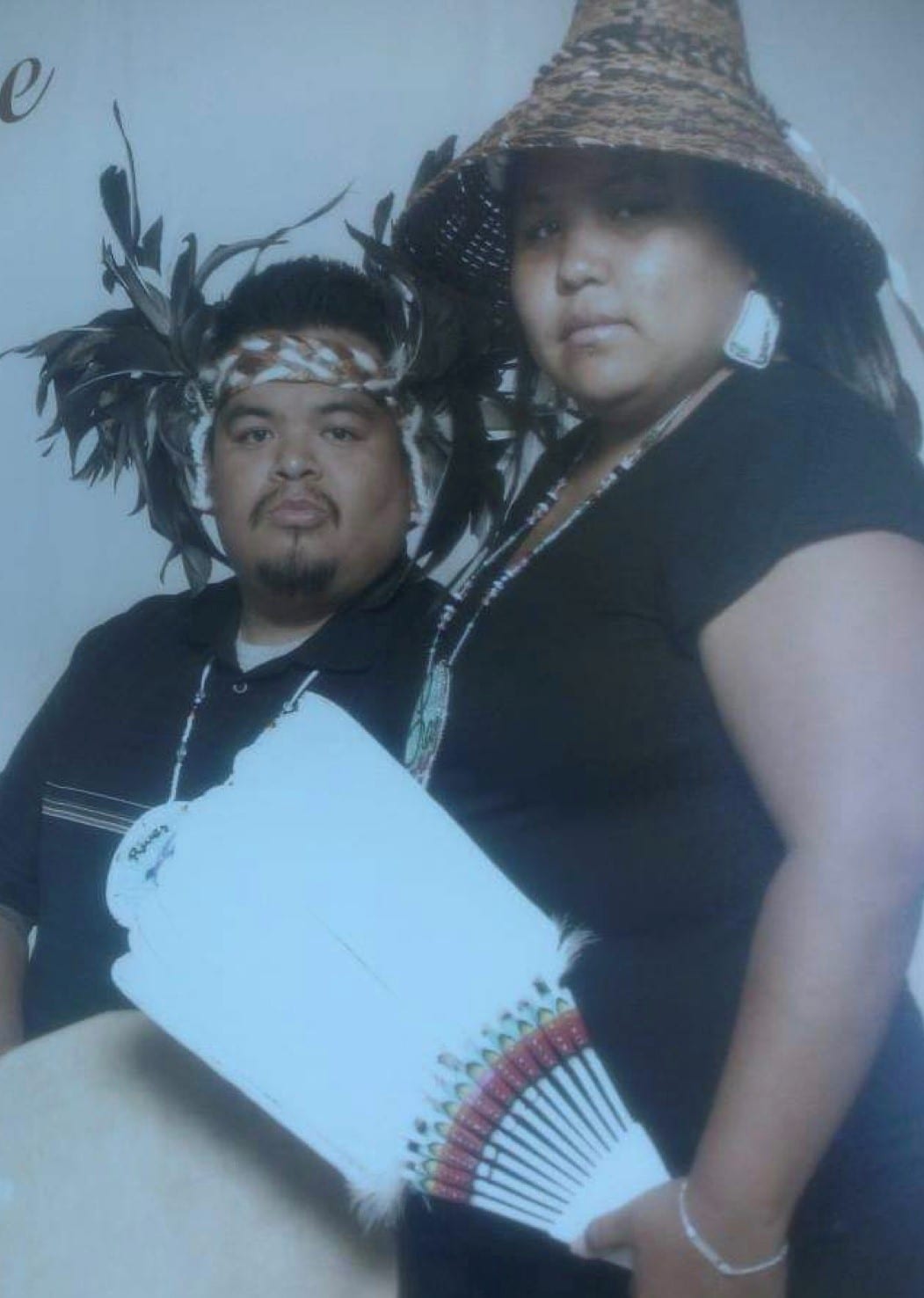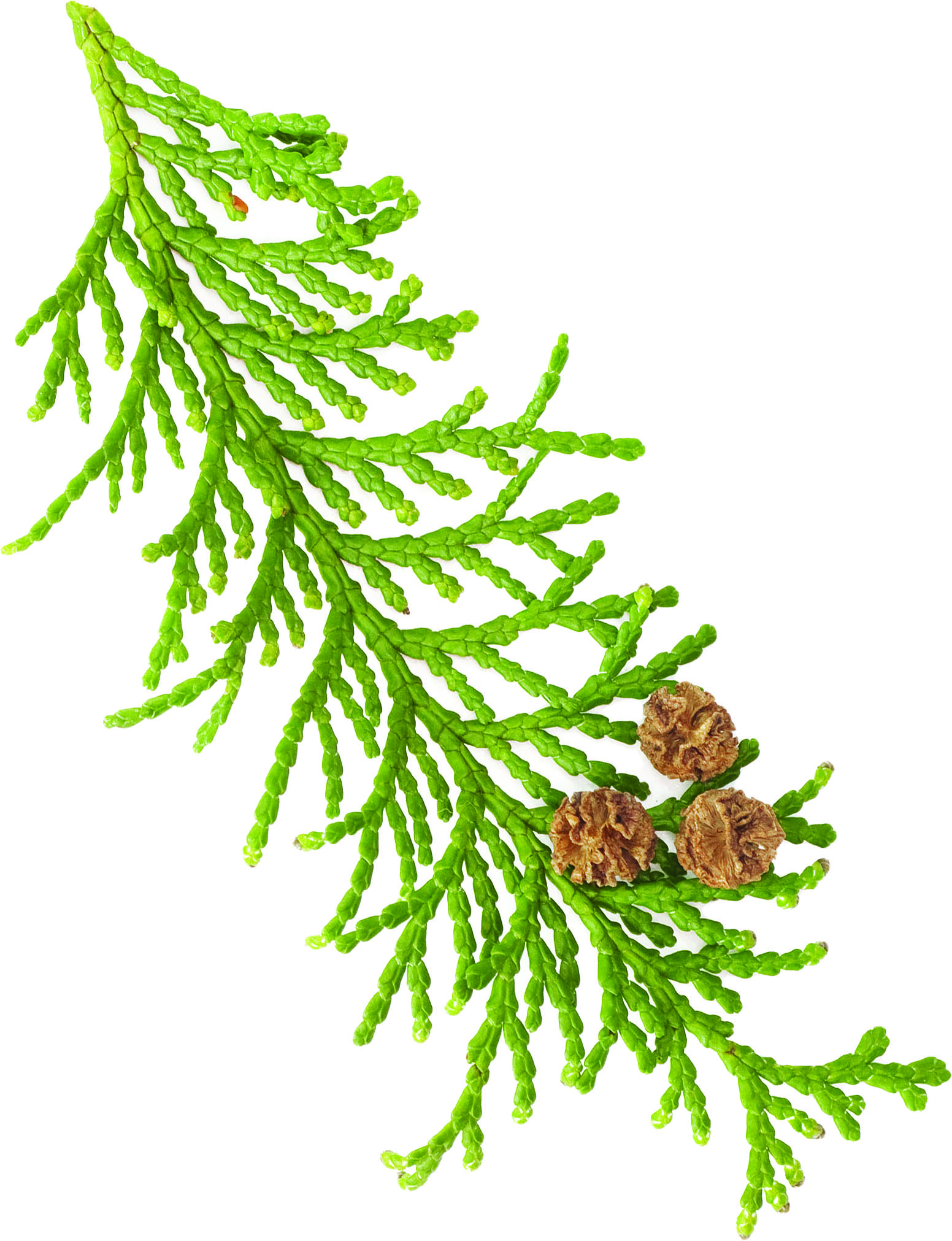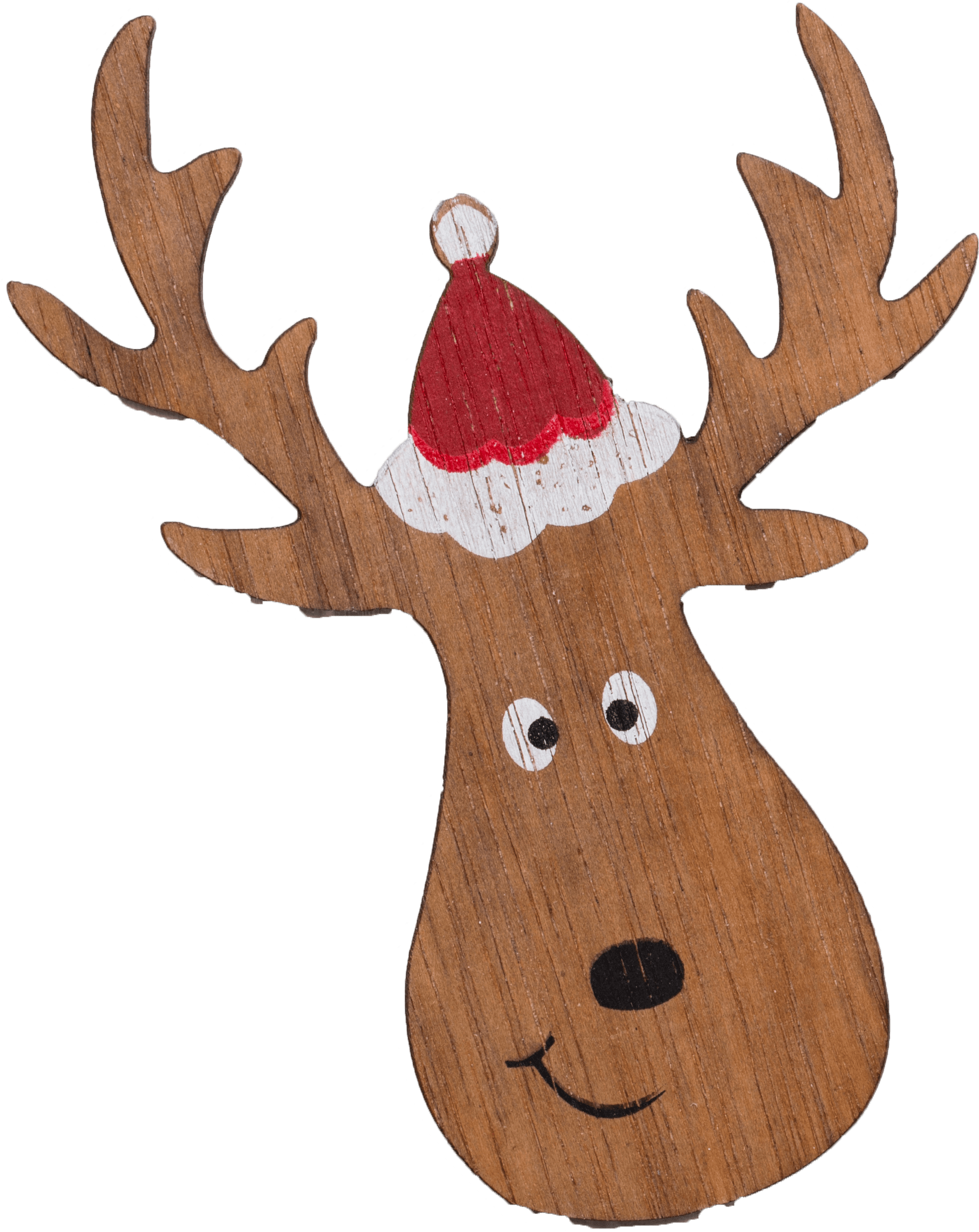Message from the Board of Directors
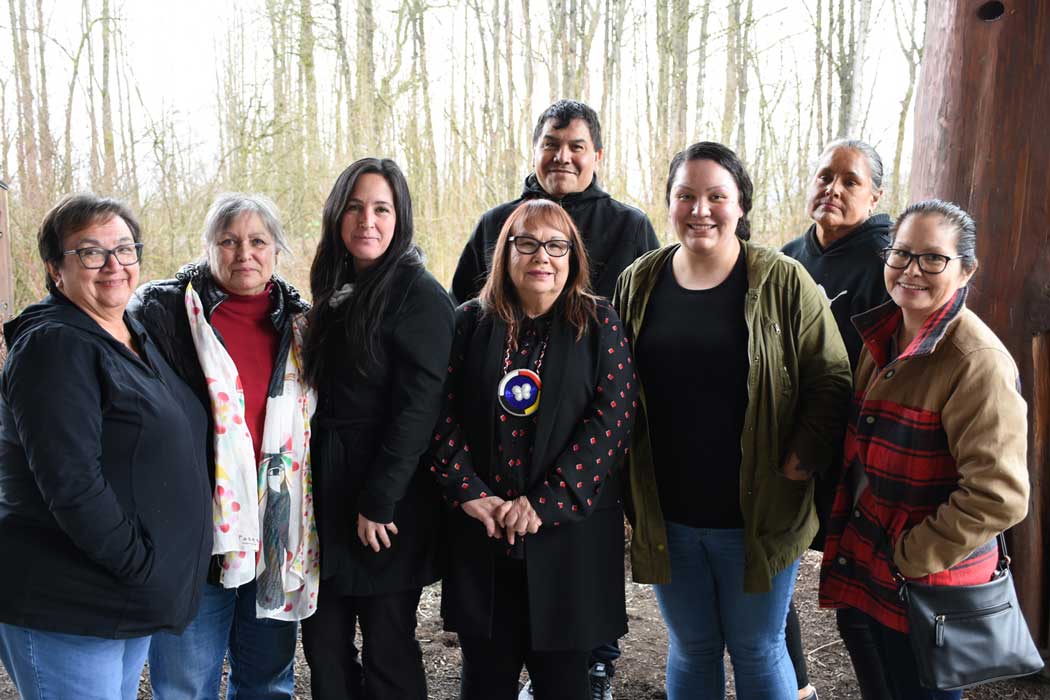
New Beginnings, New Year
Welcome to our Fall newsletter! This seasonal newsletter is about “New Beginnings”. We hope everyone had a good summer in these strange times. As we head into the Fall and Winter months, we are reminded that for the Stó:lō people, the New Year begins the third week of October. There is an article below on the New Year traditions, as well an update about our new Stó:lō Services Team, a video commemorating Orange Shirt Day “every child and every family matters”, and much more.
Personally, I love the Fall and the sense or perception of slowing down, returning to routines, harvesting what we will use and enjoy over the winter. In pre-Covid times, I would look forward to seasonal celebrations and gatherings that are the custom for Indigenous people this time of year. I will miss the gatherings this fall and winter.
Because of Covid-19 the ability to schedule gatherings and meetings and has taken on a different rhythm, there is a different reality to gathering. As an Agency we have to rethink some of the gatherings this fall. We have postponed our Annual General Meeting which typically happens this month to June 2021. We have extended the terms of Board members that were expiring until that time.
We are also rethinking our Caregiver Appreciation night, and Children’s Christmas Party’s to be different kinds of events keeping everyone safe. There is more information about how we are planning on showing appreciation for our caregiver support parents in this newsletter.
Our Board of Directors arranged for Dr. Sarah Morales to attend a 2 day socially distanced board meeting at the gymnasium in Squiala First Nation where we learned more about Bill C92 and the National Standards. Our Executive Leadership Team along with our Board of Directors were able to ask pertinent questions so as an agency we are upholding this Bill that became law January 1, 2020. We see Bill C92 as an opportunity to transform programs and services for Indigenous children and families. We are excited about this new law and the opportunities it provides.
We continue to work hard to meet and overcome the challenges before us. The Board appreciates the daily dedication to children, families and the agency as demonstrated in the work of our staff, Executive Leadership Team and Elders and Youth Advisory. The support of our membership is an integral part of our Agency and for that we are grateful.
In the spirit in our collective commitment to the children, families and communities we serve, we will continue to support all families to securing the positive changes they are seeking when working with our agency within the context of “every child and every family matters.” The acknowledgment of Orange Shirt Day reminds all of us that “New Beginnings” do happen and we all have a role to play in supporting new beginnings.
Until next time, be well, be strong and stay connected.
Marion Mussell
Board President
The Stó:lō New Year is celebrated at the end of the third week in October every year and marks the beginning of a new cycle and new beginnings. To understand why the ancestors considered this the New Year, it’s necessary to understand Stó:lō history and the relationship with Mother Nature as fishermen, hunters and harvesters.
In the spring, summer and fall every able-bodied person in the family and community was involved in gathering and processing food, says Herb Joe (T’xwelatse), Cultural Mentor with Xyólheméylh. There was little time for holistic health
“The Elders taught us in order to prepare everyone for these busy food gathering seasons and to be healthy human beings, all four parts of us have to be in harmony and in balance. Our bodies, the physical part; our minds, the mental part; our hearts, the emotional part; and the part that was most often neglected was the spiritual part of us. “
When the ancestors were busy, they couldn’t take the time to address spiritual matters and so they compensated in the winter months, spending time building up spiritual strength to build harmony and balance in their lives.
“Our Elders taught us that we have to be the strongest that we can be in order to start the New Year successfully. It was the start of a new cycle for us and we need to be in a position of strength rather than trying to catch up later,” says Herb. This included holding numerous gatherings and ceremonies such as naming and honoring ceremonies, celebrations such as weddings. It was also a time for sharing wealth with the community.
“It was a time when you brought families together to get strong so you could face the rest of the year in a good and healthy way,” says Herb.
For 80 years these ceremonies were banned under anti-potlach laws. Since the 1970s these historic practices, including Stó:lō new year, have been reestablished. Unfortunately, this year due to the pandemic, it will again be impossible to gather and practice tradition and spirituality in community.
The longhouse leadership of the Stó:lō community discussed the situation and made the decision that there would be no longhouse gatherings this winter. They will meet again in the spring to re-evaluate.
Herb says that instead they will have to practice their spirituality in a safe way with immediate family that follows Covid 19 protocols. This winter Herb is planning on passing on the senior version of his name to his grandson who he has been mentoring to follow him as a generational leader.
"Letting Go" by Penny Trites, Executive Director Staff and Community Relations
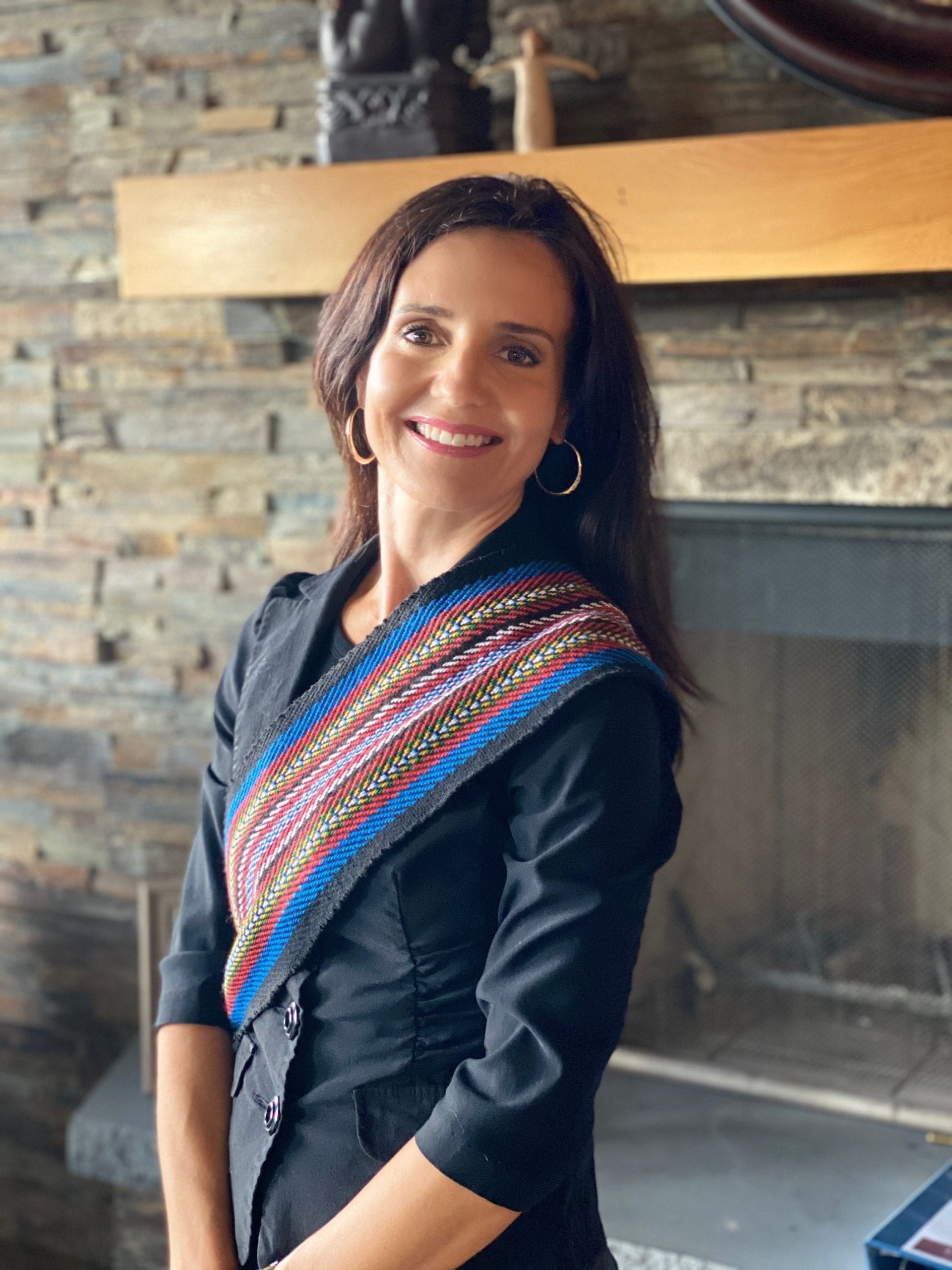
It’s hard to believe Fall is here already! I see people posting pictures of leaves changing color and falling to the ground, pumpkins, and hot cocoa. It made me think to myself, “what is it about the fall season that people love so much?” I look around my own home and many of my décor accessories include patterns or pictures of leaves. Even the tile border in the backsplash behind my kitchen stove has a leaf pattern. I opened an old book the other day, and low and behold there were dried maple leaves!
I was walking on a nature reserve getting my “daily medicine” in the place where I feel most connected to the creator. As I was walking over fallen leaves and looking up at the trees, I was thinking to myself, “what is it about leaves that I’m so drawn to?”
Many years ago, I was working as a social worker with a family and community on a complex and emotional situation that resulted in a positive outcome. Before going into a family meeting, two respected Elders who were attending asked to talk to me alone. They acknowledged that in the field of helping others “heart work is hard work.” They told me they could tell how my heart was in the right place and could see that I was carrying too much of the family’s pain. They each held my hands, looked me in the eye and said to me:
“It’s not your job to carry the pain of others…
you need to learn to let go of what doesn’t belong to you.”
Fall is the season after a busy summer as leaves are falling off the trees, we can be extra mindful of this teaching of “Letting Go” and make room for what is to come in the New Year. By learning to rake our fallen leaves, we can trust it will become the very nourishment we need to move forward into the New Year.
I am committed to doing this personally and in the portfolio I am proud to hold with the agency so we can make room for new beginnings and continue to walk a path together in a good way, with open hearts and open minds for the children, families and communities we are blessed to serve.
"Update on practice" by kyla darby, executive director of programs
There is not a day that goes by that I am not taken back by the heart and passion our staff show in the area they are responsible for within our agency.
Having been a front line social worker and team leader for over 20 years I know personally the time, energy and commitment it takes to make a difference to the children, families and communities.
As an agency we are so proud to have our Elders Advisory Council whom our staff call upon for family meetings, healing circles, and debriefings. Having our Elders sharing their cultural teachings as our knowledge keepers has helped overall with supporting staff who are committed and determined to do “the work” in a good way.
As an agency over one fifth of our files are serving the Métis Community. Having Métis and Cree elders on our Advisory council helps ensure that we are doing things in a good way. As a Director group we are strategizing on how to best meet the needs of our Métis families.
Our agency Directors each have their program responsibility and we continue to adjust as needed with our agency restructure. We have goals to continue to increase the use of family placements, return children to family and extended family, while ensuring culture is part of their day to day lives.
Orange shirt day: September 30
On September 30 we honoured the Indigenous children who were sent away to residential schools in Canada and we are reminded of the shameful and cruel part of Canada’s history and the terrible legacy that resulted.
Between the 1860s and the 1990s, approximately 150,000 Métis, Inuit and First Nations children were sent to residential schools. The children were removed from their families, forced to speak English or French instead of their ancestral languages, and disconnected from their culture and traditions.
Orange Shirt Day was started by Phyllis Webstad to educate people about residential schools and fight racism and bullying. When Phyllis was a child, she was given a new orange shirt by her grandmother for her first day of school at St. Joseph’s Mission residential school in British Columbia. When Phyllis got to school, they took away her clothes, including her new shirt. It was never returned.
To Phyllis, the colour orange reminded her of her experiences at residential school and, as she has said, “how my feelings didn’t matter, how no one cared and I felt like I was worth nothing. All of us little children were crying and no one cared.”
Orange Shirt Day was started by Phyllis to educate people about residential schools and fight racism and bullying and to emphasize that Every Child Matters.
At Xyólheméylh we deal with the direct result of colonialism and residential schools, and the intergenerational pain that has resulted. Every day we work with the impacts of this legacy but are also reminded of the resiliency of Indigenous people. In the video above we asked our Elders Mary Malloway, Julie George and Louise Silver Kaarsmaker to explain why Orange Shirt Day is important.
Meet our Stó:lō services Team
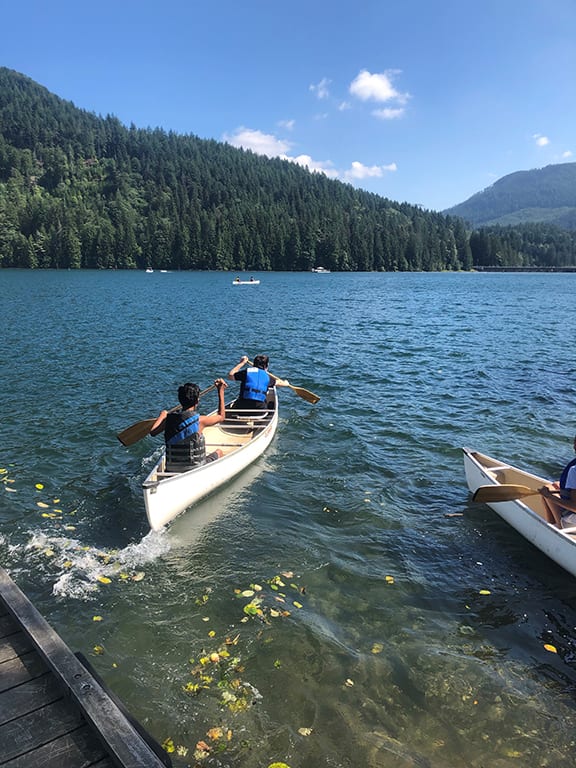
After extensive community and staff input, last fall we began restructuring our agency in order to have better outcomes for Indigenous children and families in the Fraser Valley. The biggest change has been the creation of a dedicated Stó:lō team, with staff located in the communities we serve. Laura-Dawn Wilkin leads the Stó:lō service basket with two delegated teams and a family strengthening team. They serve the children and families from our 18 member communities on and off reserve.
New funding this year has provided an opportunity for the agency to create these new teams that now offer prevention services to families.
Laura-Dawn says although the teams are still new, they have already seen positive practice shifts furthering the vision of Stó:lō children in care being brought back to community and more and more prevention services being provided. Because of this shift we are in the process of hiring a new temporary family strengthening team leader to support this community work.
We were fortunate to have recruited a number of Indigenous staff from Stó:lō territory and from other parts of Canada. The teams also work closely with our designated band reps to provide supports to families where child safety is a concern. The goal is to support building parental and extended family capacity wherever possible.
We now have staff located in community at Squiala, Tzeachten, Leq’a:mel and Chawathil and are finalizing lease agreements with other First Nation communities.
Due to the coronavirus, the team is having to come up with creative solutions to fulfill their cultural programs. They started a virtual Women’s Circle and held in person youth groups but kept the participation to individual communities and small numbers. Moving forward the team is exploring facilitating the building of canoes with the youth in several communities. Another positive change is the team is increasing the role of Elders as our traditional knowledge keepers, as well as increasing cultural training for staff.
“Staff are really passionate about returning to the original mandate from our communities and providing prevention and support in true collaboration,” says Laura-Dawn.
Meet Chuck Louie, Family Enhancement Worker
Chuck Louie is one the 18 staff on the Family Strengthening Team who works with families to help them keep their kids from coming into care. He helps with everything from arranging transportation to connecting families with resources in the community to helping find employment.
He didn't intend to be a social worker. It was a case of social work picking him, he says. "I like helping people," says Chuck.
He also enjoys connecting his clients with nature and culture and likes the renewed focus on culture the Agency is currently emphasizing.
Meet an Elder: Rosemary Treherne
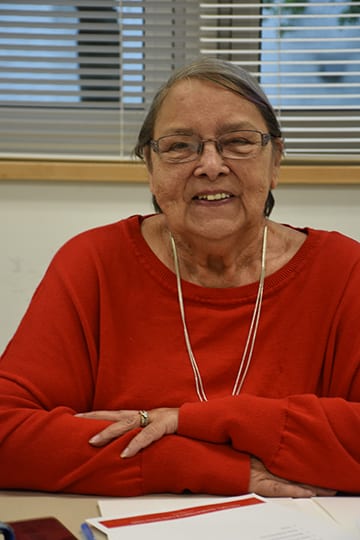
Xyólheméylh has an Elders Advisory Committee comprised of twelve elders who ensure we are delivering services in a culturally appropriate and sensitive way. The agency also has a roster of elders who are called upon for specific requests. They meet with social workers, caregivers, families and children and provide invaluable advice on conflict resolution, parenting skills, problem-solving and traditional Indigenous culture.
Rosemary Treherne (Thutsia) is one of our longest serving Elders, having been with the Agency for approximately 15 years. She is from the Skwah First Nation but represents the urban Indigenous population on the Committee.
Rosemary says she loves everything about being an Elder with Xyólheméylh. “I like how Xyólheméylh respects the Elders. I like helping families and I like working with staff,” says Rosemary. She is also enjoying the changes the Agency has made and the increased role Elders are playing now.
Rosemary believes in the importance of culture. “I believe if you don’t understand your culture, part of you is missing. If you don’t have culture, you’re not complete.”
In her spare time, Rosemary likes to read, as well as play Majong and Bridge.
Rosemary feels strongly about urging people to reach out when they need help and believes the Agency is very good at helping people. “Please don’t suffer by yourself, there are people who want to help,” says Rosemary.
Our Youth Advisory Committee is called Visions & Voices and consists of 19 youth in care or previously in care who are 14 years of age and older. The group ensures that youth have a voice within the Agency on policy and practice and within the larger system of care. The committee also organizes events for children and youth in care, and act as mentors to other Indigenous youth.
Every fall the youth organize the Visions and Voices Forum where they invite Indigenous youth from across the Fraser Valley to listen to speakers, share their experiences of being in care and take part in cultural activities and learnings. The event is being cancelled this year due to the pandemic.
The committee gets together at least once a month to share a meal, participate in workshops, and to organize events for other children and youth in care. Through their engagement in the committee, the youth learn leadership skills, build relationships and gain a sense of pride in their culture.
If you are a youth in care or previously in care, and have a suggestion, a question, or would like to be involved in the committee please contact: [email protected]. We provide dinner, transportation and a small honoraria.
Marlene Fuller is a member of the Visions and Voices Committee. She is Métis, from Surrey. She joined the committee to be a voice for children who do not have a voice themselves.
"This group is important because it helps spread the word and allows kids and families to come out and have fun without fear," says Marlene.
"My goals for the future are to be able to help kids in the system and change their views of the world," says Marlene.
Meet Support Parents august & bernadette williams
August and Bernadette Williams became support parents to three boys, ages 13, five and four. Bernadette was herself in foster care as a youth and didn’t want the three boys whose bio parents are members of their extended family, to go through what she did.
August and Bernadette became foster parents in 2010 and have adopted their now 13 year-old and are in the process of adopting their 4 year-old while taking care of another 5 year-old .
August who is from the Skwah First Nations, and Bernadette who is Squamish First Nations, have been together for 15 years. They believe it’s important for the kids to know their Indigenous background and history.
“We keep culture strong in our family,” says Bernadette “It’s important they know where they come from.”
Bernadette admits it’s challenging to keep culture strong during the pandemic because of restrictions on gatherings and visiting family. “We do our best to keep our kids safe and happy,” says Bernadette.
community profile: matsqui first nation:
Interview with Chief Alice McKay
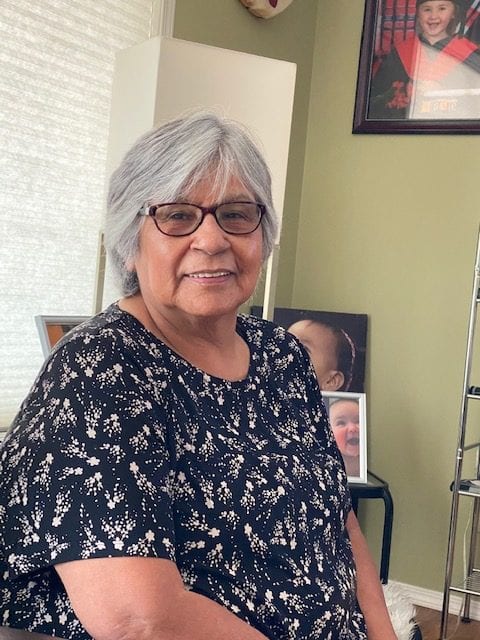
For the Matsqui First Nation, protecting their members and their land have always been the priorities. They are also proud of their independence and have been self-sustainable since the late ‘90s.
They have 207 members, with approximately 85 living on reserve. Their traditional territory stretches from the north side of Stave Lake between Crescent Island and Sumas Mountain and southward past the Canada US border.
However, 150 years ago the federal government sold off 99 per cent of their land. Last year the band filed a claim against the federal government and are seeking compensation. The claim took 10 years to prepare and they expect it to take three years to resolve. “At one time we had 9600 acres, and we still consider that our land,” says Chief Alice McKay.
The band has a beautiful new Community and Health Centre which includes a hall/gymnasium, a health centre, administration offices and council chambers. There are three elected members of the council and six family reps appointed by their families, with no one having unilateral decision-making authority.
Like every First Nation, they have suffered from the impact of residential schools. Chief McKay herself had to raise three of her grandchildren. “Our children really suffer,” says Alice about the intergenerational pain that resulted from residential schools.
Alice is busy working on several innovative and creative initiatives to help children and families and is hopeful about Bill C92 and the improvements it could bring. One such initiative is their Moms Group which was started following the introduction of Bill C92.
“It’s such an important Act we needed to get our band members involved. We’ve always said that Moms take care of things, it’s been that way forever, so we started a Moms Group a year ago. It deals with our standards of how we want our kids taken care of,” says Chief McKay.
The group meets every three weeks to discuss the Act and make sure everyone understands it. “We didn’t want to make the decisions for the Moms, we want the Moms involved,” says Alice.
”Because of the Residential Schools and the way a lot of us were brought up, our normal is a lot different. We need to make sure that all the Moms understand that the normal that we grew up with is no longer there. We have to set a high standard for our children and we want to all do it together,” says Chief McKay.
Another project that Chief McKay is passionate about is establishing a First Nations Big Brothers, Big Sisters program and is in the beginning stages developing a pilot project with Xyólheméylh to make this happen. Citing two-year line ups with the regular program, Chief McKay says it is time to do it for themselves. “If children are our future, then let’s give them the best shot at life."
“We have so many issues, we need to work together to take down the silos, put the best interests of the children, and it’ll be a better place to live,” says Alice.
Peter John, FVACFSS Board Member
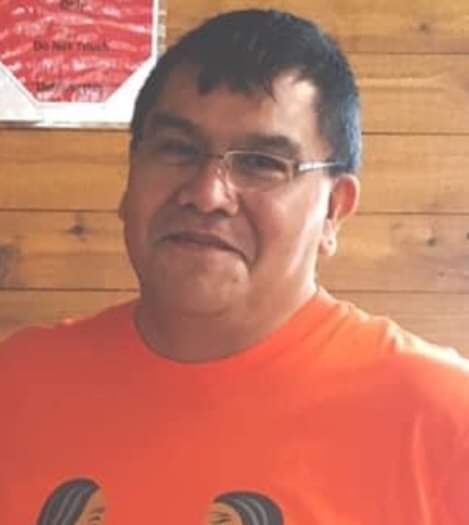
Peter John ( XaXa Moqw) is a member of the Chawathil First Nation. His First Nation name roughly translates to Holy Bird. He has over nine years of experience as a Band Councillor, serves as a member of the Chawathil Care Committee and has recently finished a term serving for five years on the Board of Directors for the First Nation Health Directors Association Fraser Region.
His work within his community has taught him that there is a great need for awareness and readiness to work in a collaborative way to meet the needs of our children, youth and families.
Peter wanted to be a part of the Fraser Valley Aboriginal Children and Family Services Society Board of Directors in order to have a voice in the guiding principles for how FVACFSS delivers services to our communities. He believes that Indigenous peoples’ rights must be protected and we should be a part of helping them to protect those rights and support them to be the best they can be.
“It is good when I see our work being completed on our level as well as the frontlines. That we work together justified in our minds that we achieve our goals and vision for the future generations. I am glad when I see others accomplishing and making a difference in their workspaces/job duties. I hope that people can recognize those achievements and set more steps and ladders for the board to further achieve and work forward on,” says Peter.
Peter has trained for two years with Dr. Jeannie Paul to collect natural medicines in Stó:lō territory. He enjoys making medicines for people who need it.
In his spare time, Peter also likes watching television and playing computer games, as well increasing the number of steps he takes daily.
“Self-care is important and I realize that I must set time aside for me. I try to change negative to positive by applying new ideas and thoughts to processes in front of me,” says Peter.
caregiver appreciation
Voices of our Children & Youth
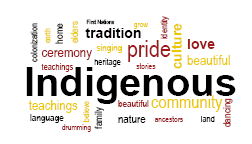
To celebrate National Indigenous Peoples’ Day this past June, we held a writing contest. We asked Indigenous children and youth in BC to express in writing what being Indigenous means to them. We received so many lovely and inspiring submissions and as an agency strive to empower our Indigenous children and Youth to share their voice all the time. We proudly share some more of the winning entries:
My name is Lorenzo and I’m six years. I’m First Nations.
1. Fishing – Wind Dry
2. Can/ Freeze food
3. Hunts deer, elk, moose
4. Learn halqemeylem and crafts
I love living off the land”
Lorenzo - Age 6
Being Indigenous means that I am powerful! My Gramma and Mom have taught me that being Indigenous I carry a big responsibility to always find my culture, to learn everything I can and share my knowledge with others who can learn too.
My elders were not allowed to celebrate their culture or speak their language. They were taught to stand down, to not be proud, to hide who they were. Our ancestors have sufferred a great pain. This pain makes us stronger and pushes us to create change in the world. Being a Indigenous girl today means I am strong, and I have the power to change the world.
Serenity - Age 11
HELP US SPREAD SOME HOLIDAY JOY!
Every Christmas we help to spread holiday joy by providing food hampers and toys/gifts to families and children/youth that receive services through our Agency. This year our goal is to provide 100 families with a food hamper and gifts for their children/youth that will enrich their Christmas experience. We invite you or your organization to consider participating in some way to make Christmas a little more special for a family in your community. Here are some ways that you or your organization can participate to make the holidays a bit brighter for deserving families:
- Any financial donation would be appreciated
- Donate gifts/toys for all age ranges/genders
- Purchase food for a hamper or donate money and we will purchase the food on your behalf. Approximate cost ranges from $100-$150, a suggested food list will be provided.
- Choose to do both by creating a food hamper and buying gifts for the children/youth. We will provide the family demographics to assist with purchasing toys and gifts.
If anyone wishes to give a cash donation, they can make a cheque payable to Fraser Valley Aboriginal Child & Family Services and send it to #1 – 7201 Vedder Road, Chilliwack BC V2R 4G5. You can also donate online below. A taxable donation receipt will be issued for donations over $25. Here are the deadlines: Commitment Forms due by November 13; Completed Hampers due by November 30; Financial Donations by December 9. Thank you in advance for your support to deserving families and children!
